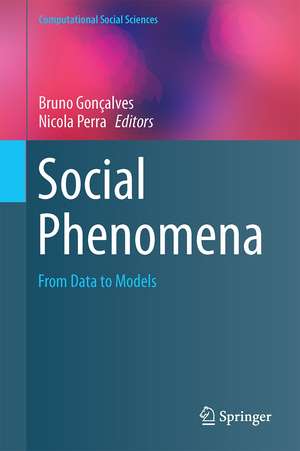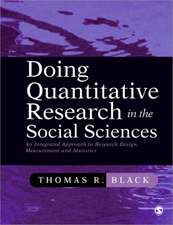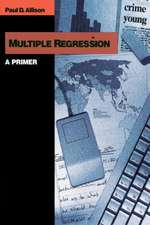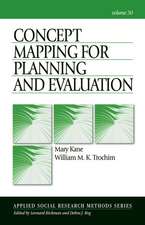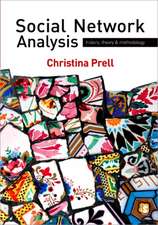Social Phenomena: From Data Analysis to Models: Computational Social Sciences
Editat de Bruno Gonçalves, Nicola Perraen Limba Engleză Hardback – 26 aug 2015
| Toate formatele și edițiile | Preț | Express |
|---|---|---|
| Paperback (1) | 557.82 lei 38-44 zile | |
| Springer International Publishing – 22 oct 2016 | 557.82 lei 38-44 zile | |
| Hardback (1) | 649.39 lei 3-5 săpt. | |
| Springer International Publishing – 26 aug 2015 | 649.39 lei 3-5 săpt. |
Din seria Computational Social Sciences
- 18%
 Preț: 964.54 lei
Preț: 964.54 lei - 15%
 Preț: 643.34 lei
Preț: 643.34 lei - 15%
 Preț: 640.88 lei
Preț: 640.88 lei - 20%
 Preț: 338.16 lei
Preț: 338.16 lei -
 Preț: 390.63 lei
Preț: 390.63 lei -
 Preț: 395.47 lei
Preț: 395.47 lei - 20%
 Preț: 662.11 lei
Preț: 662.11 lei - 20%
 Preț: 618.05 lei
Preț: 618.05 lei - 20%
 Preț: 760.97 lei
Preț: 760.97 lei - 20%
 Preț: 628.79 lei
Preț: 628.79 lei - 20%
 Preț: 649.93 lei
Preț: 649.93 lei - 20%
 Preț: 761.44 lei
Preț: 761.44 lei - 15%
 Preț: 643.48 lei
Preț: 643.48 lei - 18%
 Preț: 1117.34 lei
Preț: 1117.34 lei - 20%
 Preț: 1169.47 lei
Preț: 1169.47 lei -
 Preț: 432.12 lei
Preț: 432.12 lei -
 Preț: 393.13 lei
Preț: 393.13 lei - 18%
 Preț: 887.38 lei
Preț: 887.38 lei -
 Preț: 383.93 lei
Preț: 383.93 lei - 20%
 Preț: 241.67 lei
Preț: 241.67 lei - 15%
 Preț: 523.07 lei
Preț: 523.07 lei -
 Preț: 428.07 lei
Preț: 428.07 lei - 15%
 Preț: 693.06 lei
Preț: 693.06 lei -
 Preț: 487.75 lei
Preț: 487.75 lei - 20%
 Preț: 1166.19 lei
Preț: 1166.19 lei - 15%
 Preț: 696.02 lei
Preț: 696.02 lei - 20%
 Preț: 1156.62 lei
Preț: 1156.62 lei - 25%
 Preț: 470.31 lei
Preț: 470.31 lei
Preț: 649.39 lei
Preț vechi: 763.99 lei
-15% Nou
Puncte Express: 974
Preț estimativ în valută:
124.26€ • 130.09$ • 102.82£
124.26€ • 130.09$ • 102.82£
Carte disponibilă
Livrare economică 15-29 martie
Preluare comenzi: 021 569.72.76
Specificații
ISBN-13: 9783319140100
ISBN-10: 3319140108
Pagini: 250
Ilustrații: XII, 260 p. 71 illus., 67 illus. in color.
Dimensiuni: 155 x 235 x 22 mm
Greutate: 0.67 kg
Ediția:1st ed. 2015
Editura: Springer International Publishing
Colecția Springer
Seria Computational Social Sciences
Locul publicării:Cham, Switzerland
ISBN-10: 3319140108
Pagini: 250
Ilustrații: XII, 260 p. 71 illus., 67 illus. in color.
Dimensiuni: 155 x 235 x 22 mm
Greutate: 0.67 kg
Ediția:1st ed. 2015
Editura: Springer International Publishing
Colecția Springer
Seria Computational Social Sciences
Locul publicării:Cham, Switzerland
Public țintă
ResearchCuprins
Introduction.- Part I – Social Behavior under normal conditions.- Human mobility.- Face-to-face interactions.- Collaboration networks.- Online interactions.- Human behavior in financial markets.- Social Contagion.- Modeling and predicting human infectious diseases.- Part II – Social Behavior under stress.- Behavioral changes and adaptation induced by epidemics.- Uncovering criminal behavior with computational tools.- Crowd behavior.- Modeling terroristic escalations and warfare.- Discussion and Conclusion.
Recenzii
“As a collection of state-of-the-art summaries and several interesting applications, it could easily form the foundation of multidisciplinary conversations on the future of big data and modeling and simulation to advance understanding of social phenomena. Social Phenomena would serve as a solid starting point for those researchers interested in delving into the increasingly large, available datasets to enhance their models.” (Erika Frydenlund, JASSS The Journal of Artificial Societies and Social Simulation, Vol. 19 (2), March, 2016)
“This book is essentially a reference book on data analysis and models. It does a superb job in this domain.” (M. M. Tanik, Computing Reviews, January, 2016)
“This book is essentially a reference book on data analysis and models. It does a superb job in this domain.” (M. M. Tanik, Computing Reviews, January, 2016)
Textul de pe ultima copertă
This book focuses on the new possibilities and approaches to social modeling currently being made possible by an unprecedented variety of datasets generated by our interactions with modern technologies. This area has witnessed a veritable explosion of activity over the last few years, yielding many interesting and useful results. Our aim is to provide an overview of the state of the art in this area of research, merging an extremely heterogeneous array of datasets and models. Social Phenomena: From Data Analysis to Models is divided into two parts. Part I deals with modeling social behavior under normal conditions: How we live, travel, collaborate and interact with each other in our daily lives. Part II deals with societal behavior under exceptional conditions: Protests, armed insurgencies, terrorist attacks, and reactions to infectious diseases. This book offers an overview of one of the most fertile emerging fields bringing together practitioners from scientific communities asdiverse as social sciences, physics and computer science. We hope to not only provide an unifying framework to understand and characterize social phenomena, but also to help foster the dialogue between researchers working on similar problems from different fields and perspectives.
Caracteristici
Features the most important recent results in computational social science Contains both empirical and theoretical state-of-the-art approaches to social phenomena Fosters discussion among practitioners of diverse fields from physics to computer science to the social sciences Provides not only a study of social behavior under day-to-day conditions but also behavioral changes and social adaptations to extraordinary and stressful situations
